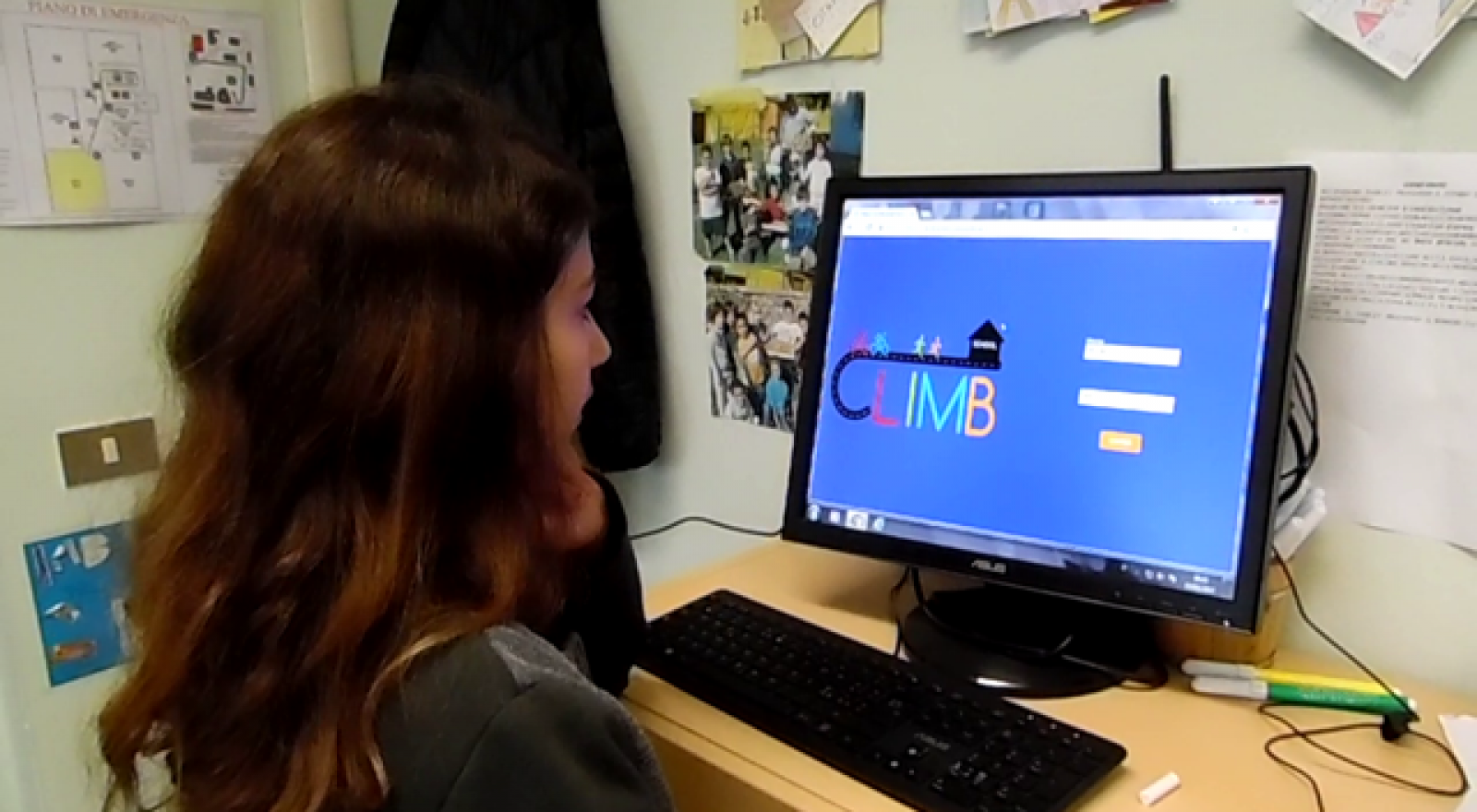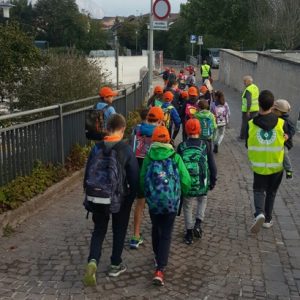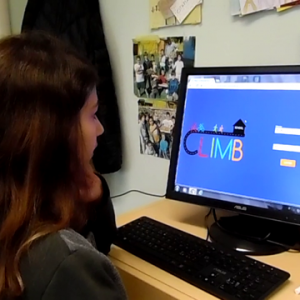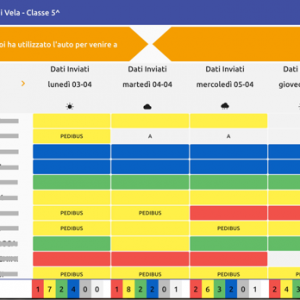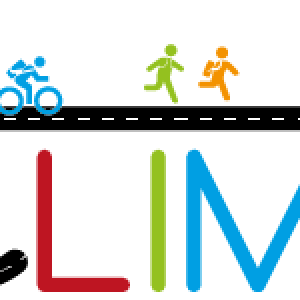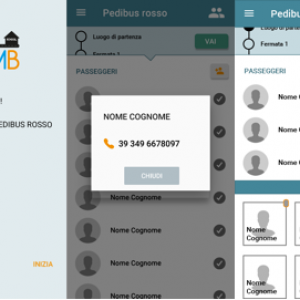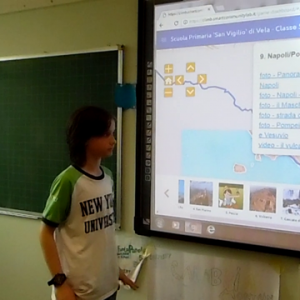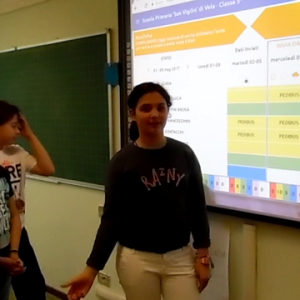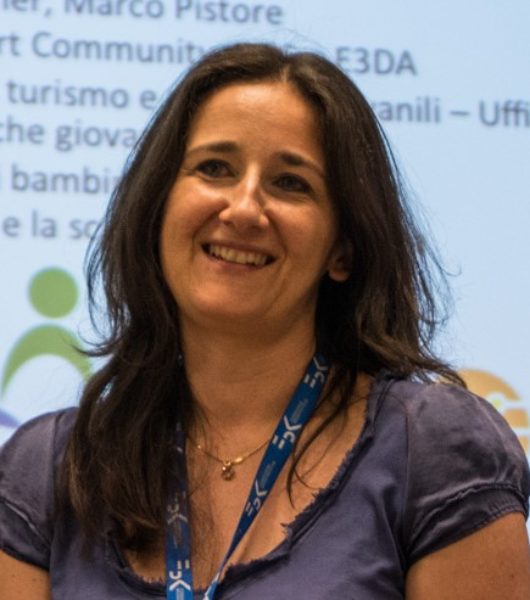The smart “Piedibus” (walking bus) becomes a game to walk across the world
Thanks to the collaboration of Fondazione Bruno Kessler, technology supports sustainable mobility
Bambini a piedi sicuri, or Kids walking safely, is a project coordinated by the Culture, Tourism and Youth policies Service, which aims to promote sustainable mobility of children on their route from home to school and to reduce traffic in front of school buildings. Started in 2004 with two schools, it was later on expanded and it now involves twelve primary schools, totaling over 2,000 participating children. The project is characterized by a large number of people involved, and by numerous actions, developed over the years, involving teachers, families, and local communities, and especially children through awareness raising workshops, road education meetings, compilation of the daily calendar of Mobility, dedicated lessons.
As part of the project, volunteer parent groups supported by the municipal administration and by schools, started Walking Buses in the Schools of Cognola, Meano and Vela in 2010, with the aim of encouraging children to walk to school in groups and thus reducing the dangers that can be found along the route from home to school.
The results achieved by the project so far in terms of improving the sustainable mobility of children in the schools involved are sensible: on average, after raising awareness in schools, there has been a 15 percent increase in the adoption of sustainable mobility of children. The contests called A scuola senz’auto (No car to school) promoted during the year were characterized by a very high drop in cars. Also, changes have been introduced over the years to make routes safer for walking kids.
Since the past school year, thanks to the collaboration with Fondazione Bruno Kessler, the challenge has become to make the mobility of children safe, social and entertaining, making the most of the social network made up of families, volunteers, schools and computer science as the technology that makes life easier.
The CLIMB project, in particular, has made available for Piedibus volunteers a mobile app to manage the various activities of the service (shifts, route changes, daily attendance of children, etc). The app is equipped with smart devices that are distributed to children and that, thanks to proximity sensors, can record attendance at each stop and help them with logbook entries.
Also in the CLIMB project, a gaming system called Kids go green was developed, which promotes the sustainable and active mobility of children through persuasive gamification. In this game, summing up all sustainable Kms (walking, cycling, school bus) made daily by children, teachers and volunteers, schools set out on a journey into the real world. Progress along this path, as well as milestones achieved, are displayed on an interactive multimedia map; In addition, each class, depending on the program, can add education material to the various milestones. The piedibus smart app allows users to automate the game by automatically collecting kms made by children and piedibus volunteers.
All the children of the Vela Primary School that are currently participating in this innovative technology-based educational game, are virtually walking toward Kangole, Uganda (more than 8,000 Km). The young travelers have so far traveled all over Italy, crossing Greece (Athens) and Egypt (Cairo), and are facing the last effort in the heart of Africa that will see them reach their final destination by June.
The experience could be extended to the other schools involved for the next school year.
City of Trento Press Office/Fondazione Bruno Kessler
